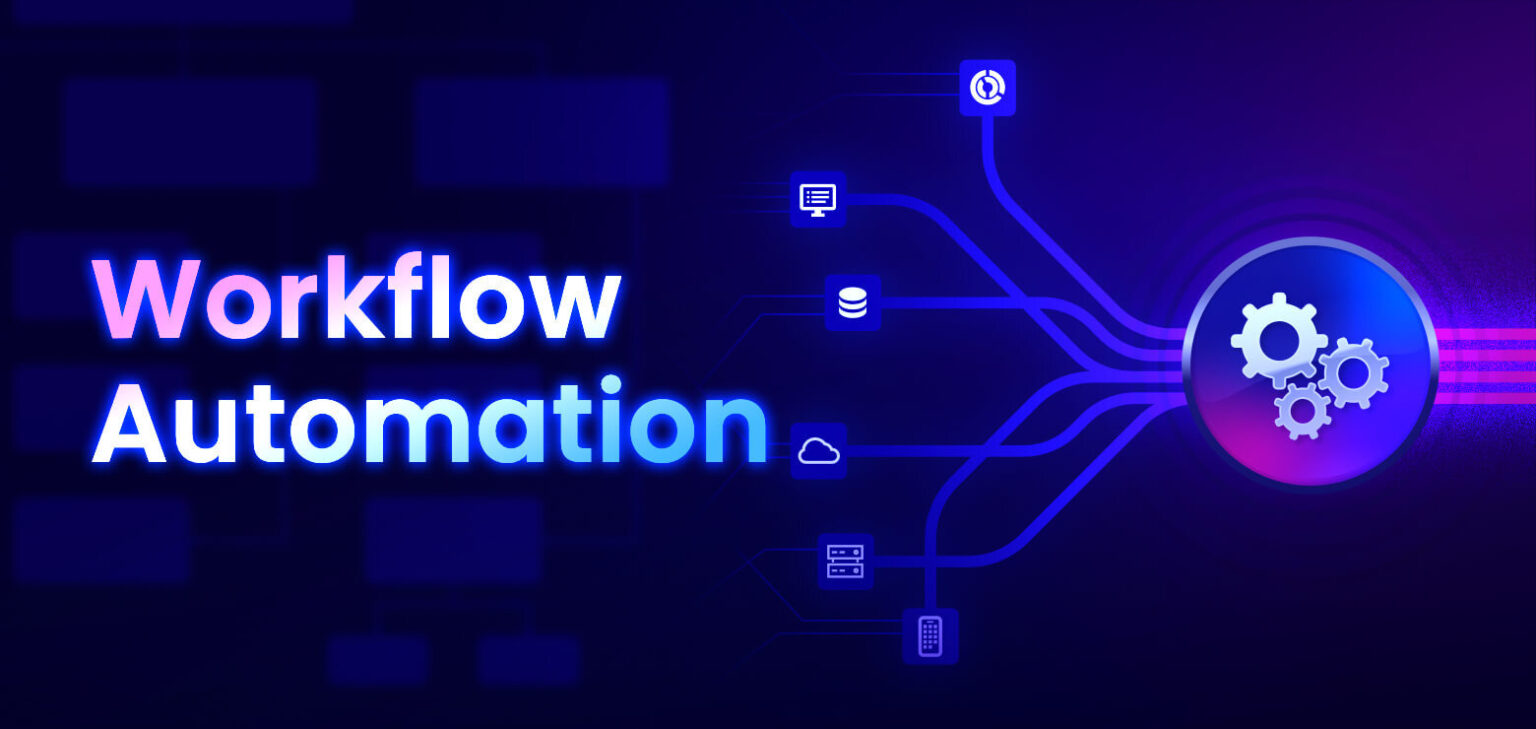In today’s fast-paced business environment, companies are under constant pressure to do more with less. Efficiency, accuracy, and speed are no longer luxuries—they are necessities. Enter workflow automation, a transformative tool that empowers businesses to streamline operations, reduce errors, and maximize productivity. But why is workflow automation such a game-changer, and how can it revolutionize modern businesses? Let’s dive deep into the subject.
What Is Workflow Automation?
Workflow automation refers to the design and implementation of systems that perform routine business tasks with minimal human intervention. By leveraging technologies like AI, machine learning, and process automation tools, businesses can automate repetitive tasks, freeing up human resources for more strategic endeavors.
Examples of workflow automation include:
- Automated invoice processing.
- Employee onboarding workflows.
- Lead nurturing through automated emails.
- Data synchronization across platforms.
The Problems Workflow Automation Solves
Modern businesses face several challenges that workflow automation addresses directly:
- Time Wastage on Repetitive Tasks
Employees spend hours on mundane tasks such as data entry or report generation, leading to lost productivity. Automation eliminates these inefficiencies. - Human Errors
Mistakes in manual tasks can lead to financial loss, data inaccuracies, or compliance issues. Automation ensures consistency and accuracy. - Scalability Issues
As businesses grow, manual processes become bottlenecks. Automation allows for seamless scaling without additional manpower. - Poor Communication
Disconnected teams and manual handovers often cause delays and confusion. Workflow automation ensures smooth communication and task transitions.
How Workflow Automation Transforms Businesses
1. Increased Efficiency
Workflow automation significantly reduces the time spent on repetitive tasks. For instance, automating the approval process for invoices can cut down the turnaround time from days to mere hours.
2. Enhanced Accuracy
By removing the human element from repetitive tasks, businesses can achieve near-perfect accuracy. This is especially crucial in industries like finance, healthcare, and legal services, where even small errors can have significant consequences.
3. Cost Savings
Automating workflows reduces the need for manual labor, allowing businesses to allocate resources more effectively. Over time, this leads to substantial cost savings.
4. Improved Employee Satisfaction
When employees are freed from mundane tasks, they can focus on more meaningful and engaging work, leading to higher job satisfaction and reduced turnover rates.
5. Data-Driven Decision Making
Workflow automation tools often come with analytics capabilities, providing businesses with valuable insights into their operations. This data can be used to optimize processes further.
Key Areas Where Workflow Automation Shines
1. Human Resources
Automation streamlines onboarding, leave approvals, and performance evaluations. For example, new employee onboarding can include automated document collection, training session scheduling, and introduction emails to the team.
2. Sales and Marketing
Automated lead nurturing campaigns, email sequences, and CRM updates ensure that no lead falls through the cracks, driving better conversion rates.
3. Finance
From invoice processing to payroll, automation ensures accuracy and timeliness in financial operations.
4. IT and Operations
Routine tasks like system monitoring, backups, and software updates can be automated, reducing downtime and improving operational efficiency.
5. Customer Service
Chatbots and automated ticketing systems ensure customers receive prompt responses, enhancing the overall experience.
Real-World Examples of Workflow Automation
1. E-commerce
An online retailer implemented automation for inventory management. The system tracks stock levels and automatically reorders products when inventory runs low, preventing stockouts and overstocking.
2. Healthcare
A hospital automated patient appointment scheduling. Patients book appointments online, and the system assigns available slots, sends reminders, and syncs data with the hospital’s CRM.
3. Manufacturing
A manufacturing company automated quality control. Sensors on the production line collect data, and AI systems analyze it to detect defects in real time.
Choosing the Right Tools for Workflow Automation
The success of workflow automation depends on selecting the right tools for your business. Here are some features to look for:
- Ease of Integration: Ensure the tool can integrate seamlessly with your existing systems.
- Customizability: Look for tools that allow you to tailor workflows to your specific needs.
- Scalability: Choose solutions that can grow with your business.
- Analytics and Reporting: The tool should provide actionable insights to optimize processes.
- User-Friendly Interface: A simple, intuitive design ensures your team can adopt the tool quickly.
Popular workflow automation tools include Zapier, Asana, Trello, and JIRA.
Challenges of Implementing Workflow Automation
While workflow automation offers immense benefits, businesses may face some challenges during implementation:
1. Resistance to Change
Employees may fear job displacement or struggle to adapt to new systems. Clear communication and training can help ease the transition.
2. Upfront Costs
Initial investment in automation tools and systems can be high, but the long-term benefits outweigh the costs.
3. Compatibility Issues
Integrating automation tools with existing systems can sometimes be challenging. Thorough planning and testing are essential.
Why Gotham Coders is the Best Partner for Workflow Automation
At Gotham Coders, we specialize in delivering tailored workflow automation solutions to modern businesses. Here’s why clients choose us:
- Expertise Across Industries: Our team has successfully implemented automation solutions in industries like healthcare, e-commerce, and finance.
- Customized Solutions: We don’t believe in one-size-fits-all. Every solution is tailored to your specific needs.
- Cutting-Edge Technology: We leverage the latest tools and technologies to ensure maximum efficiency and ROI.
- Dedicated Support: Our team provides ongoing support and training to ensure seamless implementation and adoption.
The Future of Workflow Automation
Workflow automation is set to become even more advanced with the integration of AI and machine learning. Predictive analytics, intelligent decision-making, and self-optimizing workflows are just around the corner, promising even greater efficiency and innovation for businesses.
Conclusion
Workflow automation is not just a trend—it’s a necessity for modern businesses aiming to stay competitive. By reducing manual effort, enhancing accuracy, and optimizing processes, automation empowers companies to focus on what truly matters: growth and innovation.
With Gotham Coders by your side, you can unlock the full potential of workflow automation and take your business to the next level. Ready to transform your operations? Let’s get started today!

